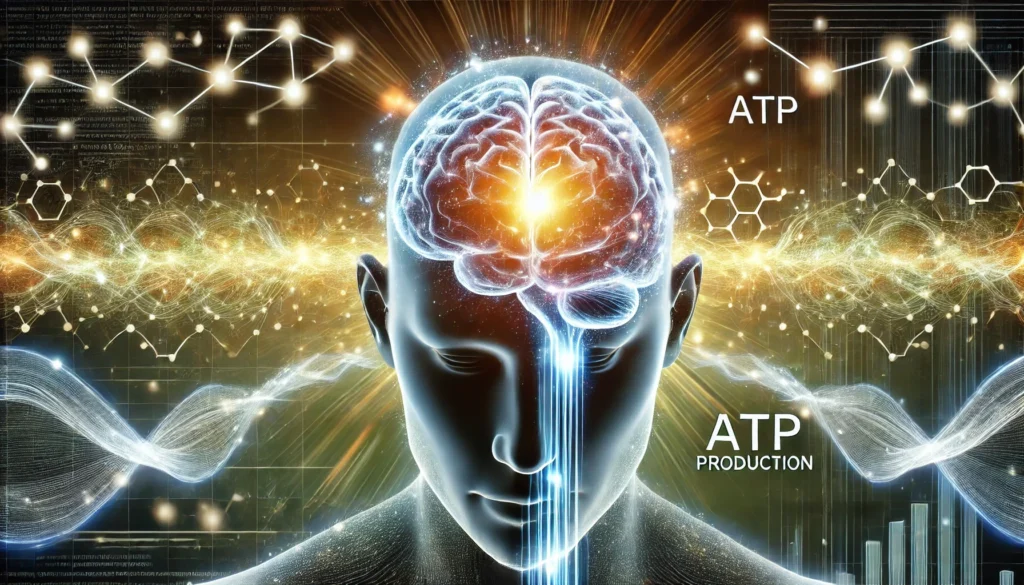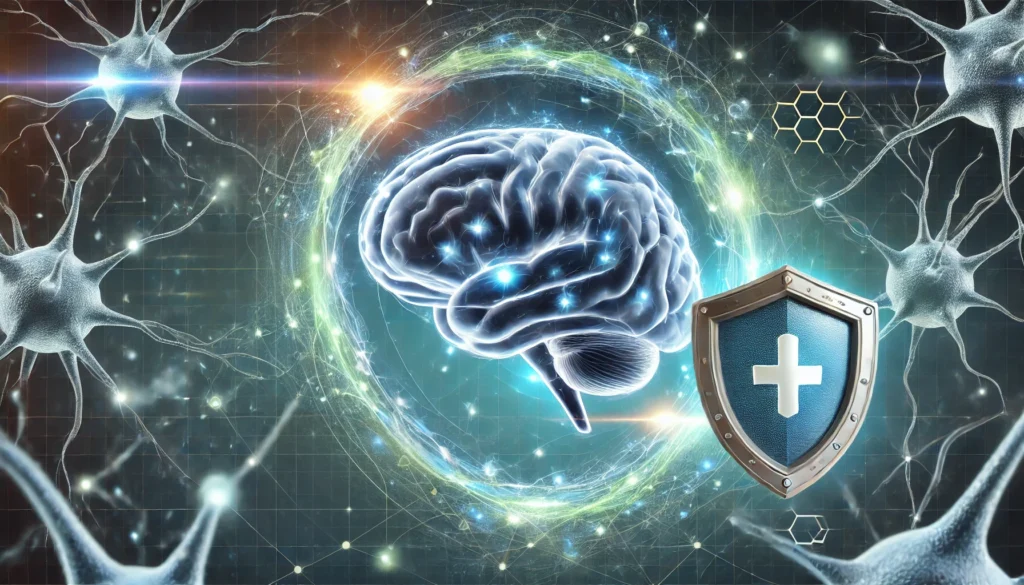In the realm of brain health and cognitive enhancement, creatine is a supplement that has garnered significant attention. Traditionally associated with muscle growth and athletic performance, creatine is now recognized for its potential benefits in supporting cognitive function. But what exactly does creatine do for the brain, and how can it be leveraged for mental acuity?
This article delves into the intersection of creatine and brain health, exploring the scientific basis, potential benefits, and top supplements available in the market today.
You May Also Like: Top Brain Health Product Brands Reviewed
The Science Behind Creatine and Brain Function
Creatine is a nitrogenous organic acid that plays a crucial role in energy production within the body. It is naturally found in muscle cells and is instrumental in producing adenosine triphosphate (ATP), the primary energy carrier in cells. While its role in muscle function is well-documented, emerging research suggests that creatine also has significant implications for brain health.
How Does Creatine Help the Brain?
The brain is an energy-intensive organ, consuming approximately 20% of the body’s total energy resources. ATP is vital for synaptic transmission, the process that underpins learning, memory, and overall cognitive function. Creatine supplementation appears to enhance the availability of ATP in the brain, thus potentially boosting cognitive processes.
Several studies have demonstrated that creatine supplementation can lead to improvements in various aspects of cognitive performance. For example, a study involving vegetarians, who typically have lower creatine levels due to dietary factors, found that those who supplemented with creatine showed significant improvements in memory tasks. This suggests that creatine can be particularly beneficial in populations with naturally lower creatine stores.
Beyond memory, creatine has been shown to enhance reasoning skills and overall mental clarity. Research indicates that individuals who take creatine may experience faster information processing and improved cognitive flexibility. These findings underscore the potential of creatine as a tool for enhancing mental performance in everyday tasks.
Creatine and Neuroprotection
In addition to cognitive enhancement, creatine may offer neuroprotective benefits. It has been suggested that creatine might help mitigate the effects of neurodegenerative disorders such as Parkinson’s and Huntington’s disease. While more research is needed to fully understand these effects, the potential for creatine to support brain health is promising.
The neuroprotective properties of creatine are thought to stem from its ability to stabilize cellular energy metabolism. By maintaining ATP levels, creatine could help protect brain cells from the energy deficits that contribute to neurodegenerative conditions. This mechanism is particularly relevant in diseases where energy metabolism is disrupted.
Moreover, creatine’s antioxidant properties may play a role in its neuroprotective effects. By reducing oxidative stress, creatine can potentially prevent damage to neurons, thereby slowing the progression of neurodegenerative diseases. While these findings are preliminary, they provide a promising avenue for future research into creatine’s role in brain health.
Studies have also explored creatine’s potential benefits for mental health conditions such as depression. Preliminary research suggests that creatine supplementation may enhance the effectiveness of antidepressant therapies, offering a novel approach to treatment-resistant depression. This highlights the diverse ways in which creatine could support overall mental well-being.

Best Creatine Supplements for Cognitive Function
When selecting a creatine supplement for brain health, it is essential to consider factors such as purity, bioavailability, and delivery method. Below, we explore some of the top creatine supplements that have been recognized for their cognitive benefits.
1. Creatine Monohydrate
Creatine monohydrate is the most researched and widely used form of creatine. It is known for its high purity and efficacy in increasing creatine stores in the brain and muscles. While traditionally available in powder form, creatine monohydrate capsules offer a convenient alternative for those seeking cognitive benefits without the hassle of mixing powders.
Creatine monohydrate has been shown to be effective in enhancing both physical and cognitive performance. Its simple structure allows for easy absorption and utilization by the body, making it a staple in both athletic and cognitive enhancement regimens. For those new to creatine supplementation, monohydrate is often recommended as the starting point due to its extensive research backing.
Best Creatine Monohydrate Capsules
Optimum Nutrition Micronized Creatine Capsules are highly recommended for their micronized formulation, which enhances absorption and reduces the likelihood of gastrointestinal discomfort.
These capsules are designed to dissolve quickly and completely, ensuring that the body can efficiently utilize the creatine. This formulation is particularly beneficial for individuals who experience digestive issues with traditional creatine powders, providing a more comfortable supplementation experience.
The reputation of Optimum Nutrition as a reliable brand further adds to the appeal of these capsules. Known for their rigorous quality standards and consistent product performance, Optimum Nutrition ensures that consumers receive a high-quality creatine supplement that delivers on its promises.
Another advantage of these capsules is their convenience. With no need for mixing or measuring, they offer a straightforward way to incorporate creatine into a daily routine, making them an ideal choice for busy individuals seeking cognitive enhancement.
2. Creatine HCL (Hydrochloride)
Creatine HCL is another popular form, known for its superior solubility and absorption compared to monohydrate. This makes it an excellent choice for individuals who experience bloating or digestive issues with other forms of creatine.
The hydrochloride form of creatine dissolves more easily in water, leading to better absorption and a reduced risk of gastrointestinal side effects. This characteristic makes creatine HCL particularly appealing for those with sensitive stomachs or those who have struggled with traditional creatine supplements.
Research indicates that creatine HCL may allow for smaller dosages while still delivering effective results. This can be advantageous for individuals who prefer a more compact supplement regimen or who are concerned about the volume of their daily supplement intake.
Top Pick for Creatine HCL
KAGED Muscle Creatine HCL is a standout product, praised for its purity and effectiveness in boosting both physical and cognitive performance.
KAGED Muscle is renowned for its commitment to quality and transparency, ensuring that consumers receive a product free from unnecessary additives and fillers. Their creatine HCL is rigorously tested for purity, providing peace of mind to users who prioritize clean supplementation.
The effectiveness of KAGED Muscle Creatine HCL in enhancing mental clarity and focus has been noted by many users, making it a popular choice among those seeking cognitive benefits. Its easy-to-mix formula further enhances its appeal, providing a seamless addition to any supplement routine.
3. Buffered Creatine
Buffered creatine, such as Kre-Alkalyn, is designed to remain stable in the stomach, potentially reducing side effects and improving absorption rates. It is considered a viable option for those sensitive to the acidity of traditional creatine supplements.
Buffered creatine is formulated to resist the conversion to creatinine, a byproduct that can contribute to gastrointestinal discomfort. This stability allows for more efficient absorption into the bloodstream, ensuring that users receive the full benefits of the supplement.
The unique formulation of buffered creatine makes it a preferred choice for individuals who have experienced negative side effects with other creatine forms. Its ability to deliver effective results without the associated discomfort has made it a popular alternative for cognitive enhancement.
Recommended Buffered Creatine
EFX Sports Kre-Alkalyn is a reputable brand offering buffered creatine that has been shown to support mental and physical endurance.
EFX Sports Kre-Alkalyn has received accolades for its innovative pH-buffering technology, which enhances the stability and effectiveness of creatine supplementation. This advanced formulation provides a smooth and effective experience for users seeking to boost cognitive and physical performance.
The brand’s dedication to research and development is evident in the quality and efficacy of its products. EFX Sports Kre-Alkalyn is trusted by athletes and cognitive enhancers alike for its ability to deliver consistent and reliable results without the common drawbacks of traditional creatine supplements.

Dosage and Safety Considerations
Understanding the appropriate dosage of creatine for cognitive benefits is crucial. While the optimal dosage can vary based on individual needs and goals, a common recommendation is 3-5 grams per day. It is advisable to start at the lower end of the dosage spectrum and adjust as needed, based on personal response and any side effects.
Creatine is generally considered safe for long-term use, with few reported adverse effects. However, individuals with kidney issues or other medical conditions should consult a healthcare professional before beginning supplementation.
When starting a creatine regimen, gradual dosage increases can help the body adjust and minimize any potential side effects. Monitoring one’s response to creatine is important, as individual tolerance can vary, and adjustments may be necessary to achieve optimal results.
Hydration is another key consideration when taking creatine. Adequate water intake is essential to support the body’s increased demand for hydration, ensuring that creatine is effectively utilized and that any potential dehydration risks are mitigated.
While creatine is widely regarded as safe, it is important to source supplements from reputable brands that adhere to strict quality control measures. This ensures that users receive a pure and effective product, free from contaminants and impurities.
The Future of Creatine in Cognitive Enhancement
As research continues to uncover the multifaceted benefits of creatine, its role in cognitive enhancement becomes increasingly compelling. Future studies may further elucidate the mechanisms by which creatine supports brain function and explore its potential applications in treating cognitive impairments.
Is Creatine Good for Brain Health?
The current body of evidence suggests that creatine is indeed beneficial for brain health, particularly in terms of energy metabolism, neuroprotection, and cognitive performance. As such, it holds promise as a valuable tool in the quest for enhanced mental acuity.
Creatine’s ability to support energy metabolism in the brain is a cornerstone of its cognitive benefits. By enhancing ATP availability, creatine provides a sustained energy source that can improve mental endurance and resilience, particularly under conditions of cognitive stress.
The neuroprotective properties of creatine offer an additional layer of benefit, potentially safeguarding brain health against the effects of aging and neurodegenerative diseases. This aspect of creatine’s action makes it a promising candidate for future therapeutic applications.
The potential of creatine to enhance cognitive function is not limited to the general population. Emerging research is exploring its role in specific groups, such as older adults and individuals with cognitive impairments, where creatine supplementation may offer targeted benefits.

Conclusion
Creatine, once solely the domain of athletes and bodybuilders, is now emerging as a potent cognitive enhancer. With a growing array of supplements tailored to brain health, individuals seeking to boost their mental prowess have more options than ever.
Whether you’re a health and wellness coach, science journalist, or biohacker, understanding the benefits of creatine for cognitive function can empower you to make informed decisions about supplementation.
As always, it’s important to choose high-quality products and consult with a healthcare professional, particularly when introducing new supplements into your regimen. With the right approach, creatine can be a valuable ally in maintaining and enhancing brain health.
Incorporating creatine into a holistic approach to cognitive health can yield substantial benefits. By combining supplementation with other brain-healthy practices, such as a balanced diet and regular exercise, individuals can optimize their cognitive performance and overall well-being.
Further Reading:
Effects of Creatine Supplementation on Brain Function and Health
I Review Supplements for a Living, This is the One I Recommend to Almost Everyone
What Does Creatine Do For Women? Benefits, Side Effects, And How to Use The Supplement
Important Note: The information contained in this article is for general informational purposes only, and should not be construed as health or medical advice, nor is it intended to diagnose, prevent, treat, or cure any disease or health condition. Before embarking on any diet, fitness regimen, or program of nutritional supplementation, it is advisable to consult your healthcare professional in order to determine its safety and probable efficacy in terms of your individual state of health.
Regarding Nutritional Supplements Or Other Non-Prescription Health Products: If any nutritional supplements or other non-prescription health products are mentioned in the foregoing article, any claims or statements made about them have not been evaluated by the U.S. Food and Drug Administration, and such nutritional supplements or other health products are not intended to diagnose, treat, cure, or prevent any disease.


